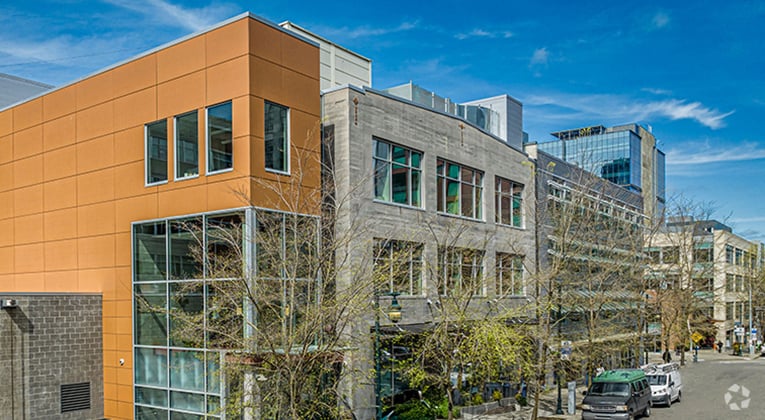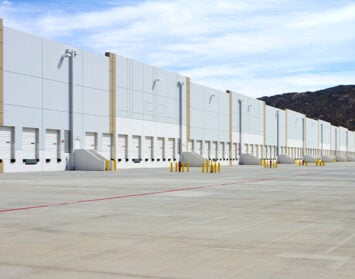A recent story in the Puget Sound Business Journal predicts that Seattle’s life science real estate market is in serious decline. The article points to the fact that there are a number of new buildings that are nearing completion with ample space still available for pre-leasing.
But premier tenant representative commercial real estate firm Hughes Marino, and their team in Seattle, see a different shift underway. Similar to other life sciences hubs around the country, they say the sector is not contracting, but expanding to include new cleantech companies who are eager to tap into the city’s deep engineering and tech talent. And there’s plenty of interest from these rapidly expanding tech startups in Seattle—a city filled with real estate opportunities and amenities.
Owen Rice, executive vice president in Hughes Marino’s Seattle office, points to Zeno Power as a prime example. The fast-growing company has found a new way to transform nuclear waste material into power systems that can be used to power applications from lunar landers to undersea infrastructure. Radioisotope Power Systems (RPSs) have been used in the past, but their use has been limited to NASA and other government missions.
Zeno has developed an RPS that is lightweight and affordable, opening up new commercial opportunities for the technology. The startup received a $30 million award from the Department of Defense to develop a satellite powered by its RPS, and another $15 million award from NASA to develop an RPS for future lunar surface missions. Zeno has partnered with the U.S. Department of Energy to access strontium-90 from the Oak Ridge National Laboratory in Tennessee, turning waste material into a valuable fuel source.
The company’s corporate office is located in downtown Washington, D.C., where Hughes Marino helped establish them in an office that features spacious, modern interiors with an industrial edge and plenty of built-in technology and amenities.
The Washington, D.C. location makes sense for a company working closely with government agencies. But as demand for its technology accelerates, Zeno sought to expand and find space to support its growing research and development efforts. The company decided to open a new office in the Seattle area to tap into the region’s significant aerospace, clean-tech and engineering talent base. Seattle ranks second behind San Francisco for top technology talent and has turned into a burgeoning hub for advanced nuclear innovation, being home to Helion, TerraPower, Ultra Safe Nuclear and other key players in the industry.
Rice knew there was great opportunity in the region—and thanks to the available real estate, it would be possible to get a modern office and lab space in the trendy South Lake Union neighborhood. It’s an ideal location for Zeno. South Lake Union features a mix of industrial buildings, office towers, trendy restaurants, apartments and hotels, as well as the nearby lakefront and water activities. The area is also a central hub for startups and established tech companies—home to Amazon’s corporate headquarters as well as offices for Google and Facebook.
The market conditions were ideal, Rice says. “Had we done this during the pandemic when space was in demand, we would have paid much more,” said Rice, “but the timing was rather incredible—and we were patient knowing the market was softening. As a result, Zeno is in a space they absolutely love, and recruiting like crazy. It’s a great example of how really great space attracts really great talent.”
And Zeno is part of a growing momentum of clean tech companies in Seattle and Washington state which is likely to accelerate demand for the open real estate. There’s the regional incubator, Cascadia CleanTech Accelerator, which offers training and support to early-stage cleantech startups, and has invested nearly $10 million in the sector since 2016. Meanwhile, local angel investment group, E8, has committed $60 million to early-stage cleantech companies. This comes on top of Washington’s state’s support for clean energy—which includes an ambitious zero-carbon goal for 2045 and over $150 million for cleantech grants from the state’s clean energy fund since 2013.
For a cleantech startup looking to tap into resources, financial support, top talent and a thriving neighborhood scene that offers urban amenities and natural attractions, Rice says, there’s no better place to be than Seattle.









